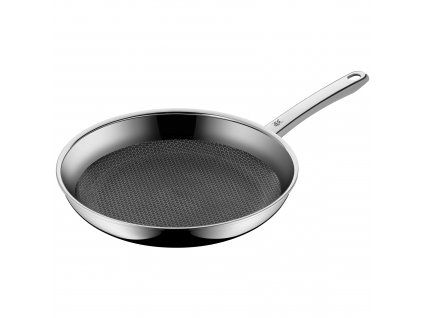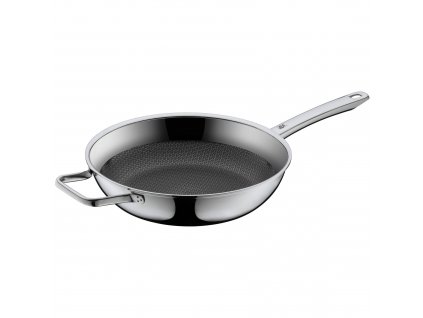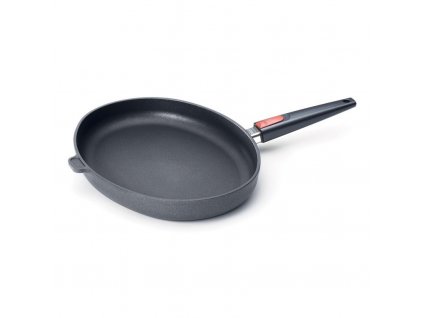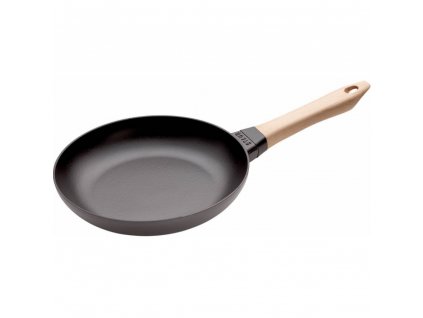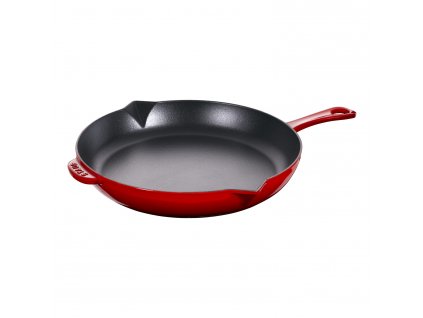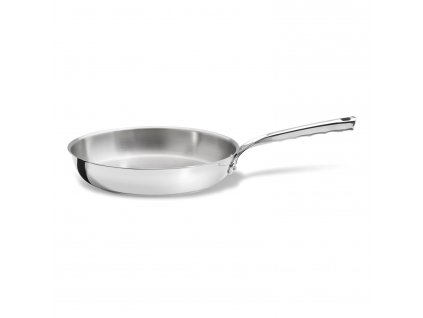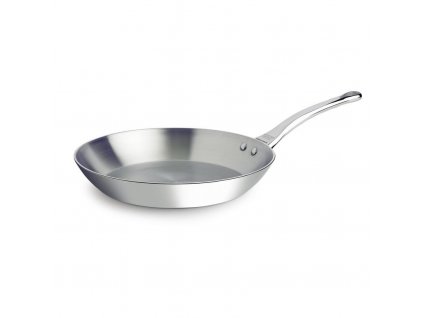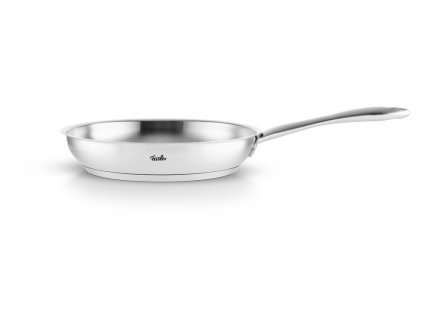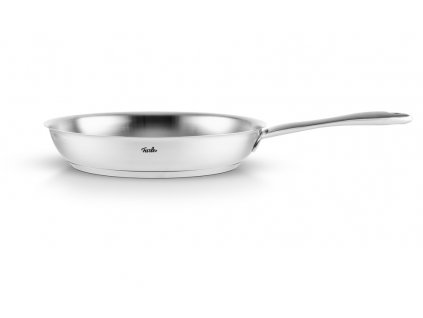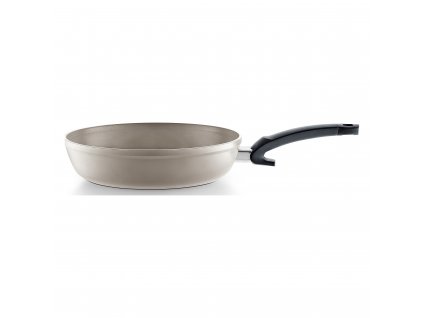Universal frying pans
Frying pans – what are the best pans to fry in?
Frying pans are a must-have in every kitchen. The most common types of frying pans are aluminium, stainless steel, copper or cast iron pans. Each of the materials has its own characteristics and advantages, which you can read below or in our complete guide on pans here.
What are the best skillets and what type of food they are suitable for?
- stainless steel frying pans: for almost all types of food that you want to fry, brown or sear, they are practically indestructible and the material offers superior heat distribution
- aluminium skillets are best for searing individual portions of meat, steaks, burgers or frying eggs. Aluminium pans are lightweight and very good at distributing heat but remember that they don’t retain heat very well, so when you add food to the hot pan the temperature will fluctuate
- cast iron frying pans are the best for steaks but also for frying and searing different types of food. Still, you should remember not to use them for foods like tomatoes and other acidic ingredients, delicate fish, eggs or sticky desserts
- copper frying pans heat up and cool down quickly, they look beautiful and are a great decoration of every kitchen, they are perfect for cooking foods that require steady heat and precise temperature control (for fish, sauces or sweets such as caramel) but they should not be used with acidic ingredients like lemon juice, wine or tomatoes
Buying the right frying pan depends also on what kind of food you usually fry, what kind of cooker you use and how many people you usually cook for. You can also check our selection of woks and grill pans.
Are non-stick pans good for frying and why do professional chefs hate them?
Non-stick pans are very comfortable and easy to use and many people love using them for all sorts of culinary tasks, including frying, browning or stewing. Still, you have to know they are usually very delicate and it’s easy to destroy their non-stick coating by using the wrong kitchen utensils or too strong, abrasive chemicals. That is the reason professional chefs don’t use them in professional kitchens or in restaurants where frying pans are being used all the time.
Still, non-stick pans are great tools to use at home and the combination of stainless steel and non-stick functionality is perfect for all types of home chefs, including total beginners. Use your non-stick pans, especially for egg dishes, vegetables, poultry and delicate fish.
How often should you replace non-stick pans?
According to some general rules, you should replace them approximately every five years but you have to look at your pan from time to time and if you notice that it is warped, scratched or discoloured you should stop using it immediately.
Which frying pans are the best?
In Kulina you will find a lot of reliable, high-quality frying pans made by well-known manufacturers such as Zwilling, Fiskars, Fissler, Woll or WMF. The choice depends on which material you prefer and how much money you want to invest in your pan. Choose Tefal if you are looking for an inexpensive non-stick frying pan or go for de Buyer if you can afford a premium pan by a legendary French manufacturer.
How to care for your frying pans?
If you invested money in a good-quality skillet you should care for it in an appropriate way that will ensure its long and healthy use. How to maintain your frying pan? Follow these simple rules to enjoy your pans for a long time:
- use only silicon utensils on your non-stick pans,
- always hand-wash your pans, don’t use strong detergents or scrubs,
- dry your pans immediately after washing them,
- avoid major temperature changes (never put a hot pan under cold water),
- try to avoid acid food and aerosol cooking sprays,
- coat your pan after drying it with a thin layer of oil,
- store your pans properly





